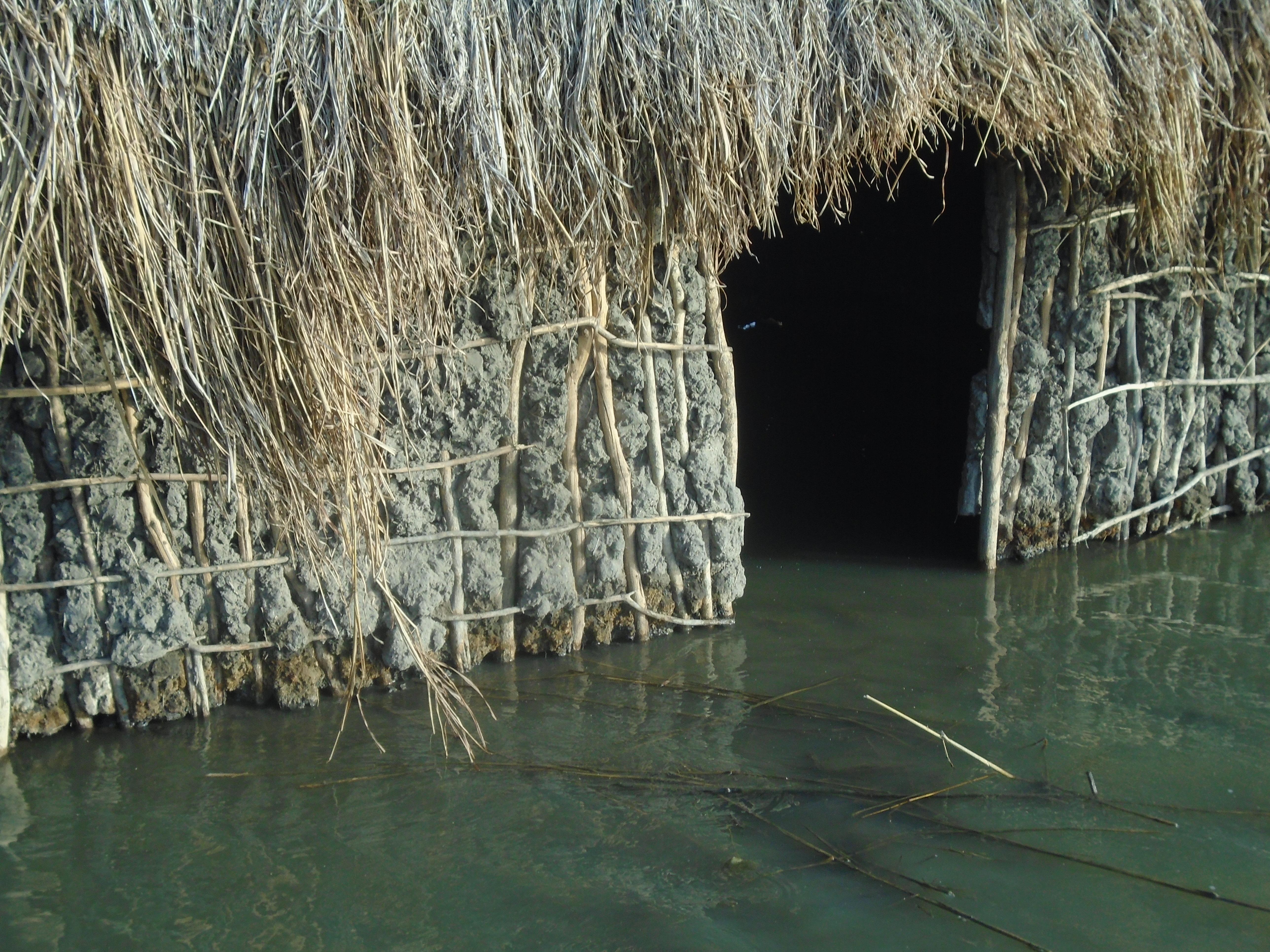The heavy rainfall which began in July 2020 to end of November caused tragedy to the people of South Sudan. According to the report of UN Office for Coordination of Humanitarian affair (UN OCHA Severe flooding has again affected an estimate of 1,066,000 people across a wide swathe of South Sudan. Services that include livelihood, shelter, water, hygiene and sanitation, health and protection services are severely been affected. many people displaced from their homes seeking safety in high grounds.
This flood is regarded as a double shock to the people of South Sudan as the country is still experiencing multiple emergencies that included War and conflict, economic crisis as well as COVID-19 pandemic. Most of the flood affected states and Counties are experiencing increase in diseases such as diarrhea, malaria and other water borne diseases given the high risk caused by displacement and crowding, poor hygiene conditions, and a lack of functioning latrines.
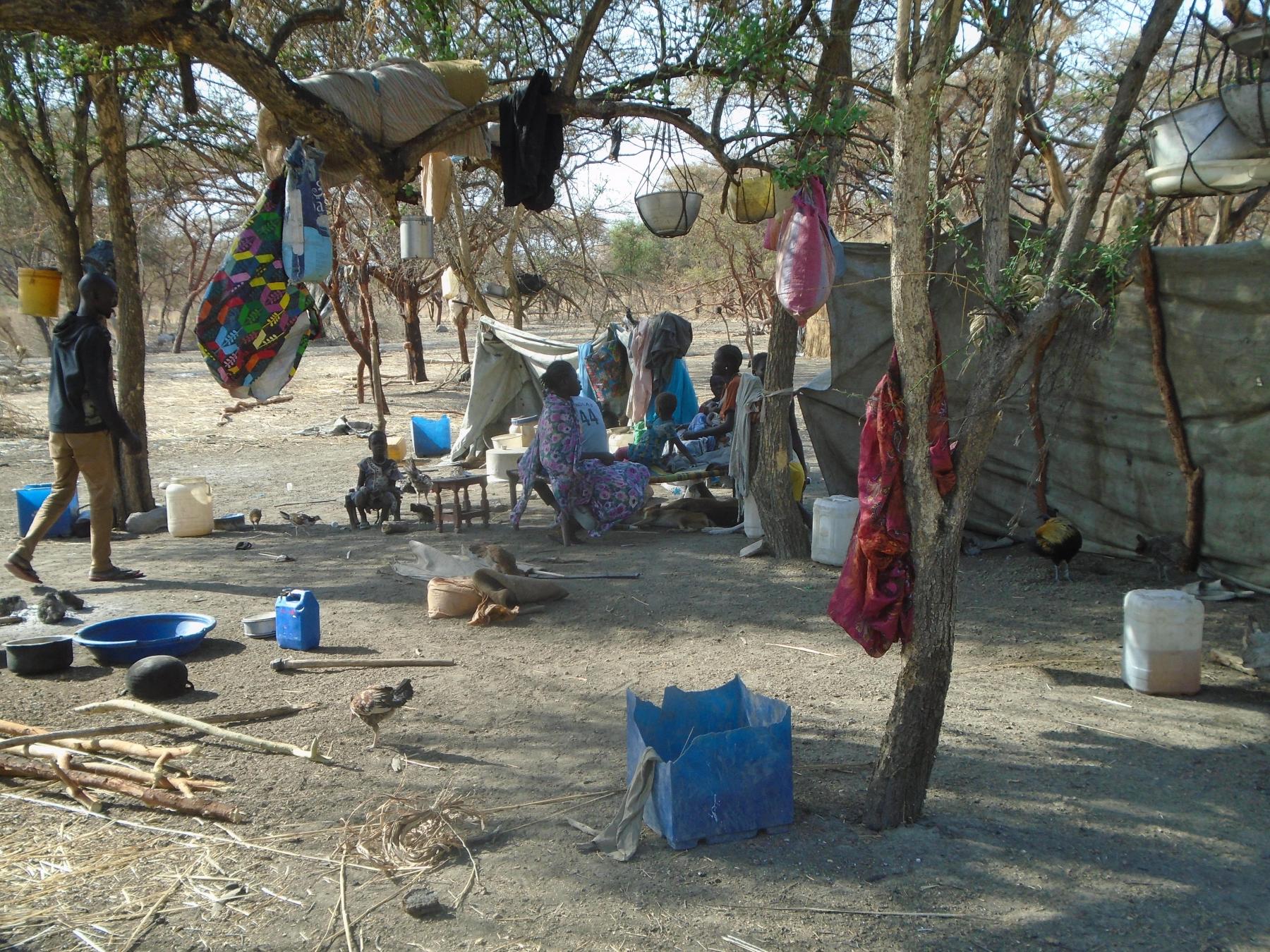
Families relocated to high safe ground due to flood are under trees with no shelter
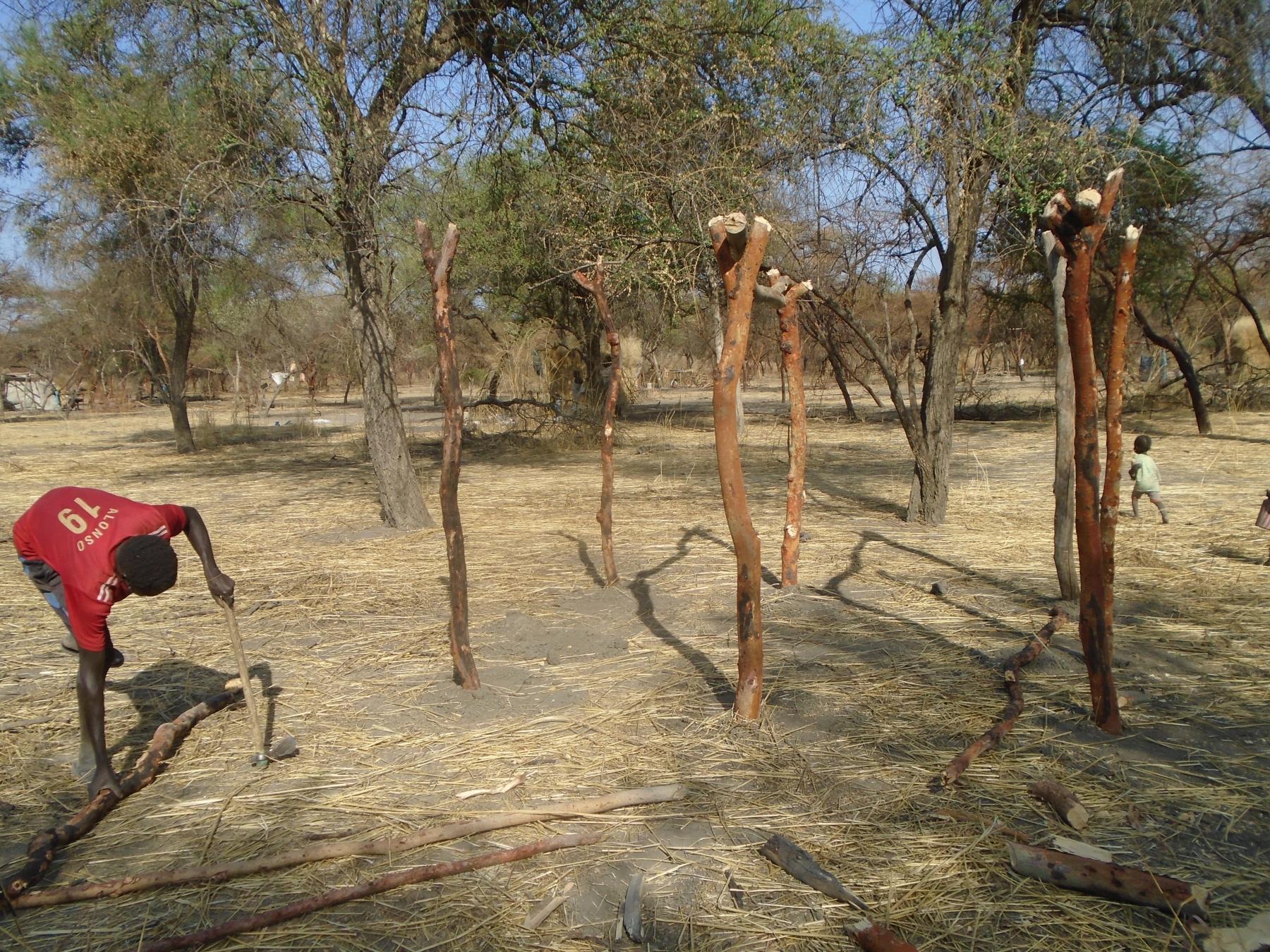
Some families who moved to high ground cut trees to build some temporal shelter
The impact of flood in Fashoda County (Lul payam and the surrounding villages the Aburoc IDPs camp one of the WOCO’s areas of coverage in upper Nile State has been very severe on IDPs, host community and returnees. It is at that junction the Humanitarian organizations operating in Fashoda County came with an idea of conducting a multi-sectoral initial rapid needs assessment (IRNA) in February 2021 covering Fashoda and Manyo County to assess the impact of the flood on affected people and to identify their immediate needs. The assessment finding revealed that many residents in those areas are in dire urgent need of humanitarian assistance.
Currently WOCO in partnership with WARCHILD HOLLAND is working round the clock to respond to the most immediate child protection needs identified in those areas. The plan is under way to support 1500 affected households with NFIs which include blankets, mosquito nets, sleeping mats and plastic sheets to help them reconstruct their shelters, the affected people will be provided with wash material that include soap and washing hands facilities including awareness on hygiene promotion and other services
Children with protection concerns will be provided with focus and non focus mobile psychosocial support and comprehensive case management services including referral to appropriate service providers.
WOCO staff capacity to respond to child protection issues
The frontline staff of WOCO are well equipped with information on child protection and psychosocial support that will enable them to respond to the needs of the affect people.
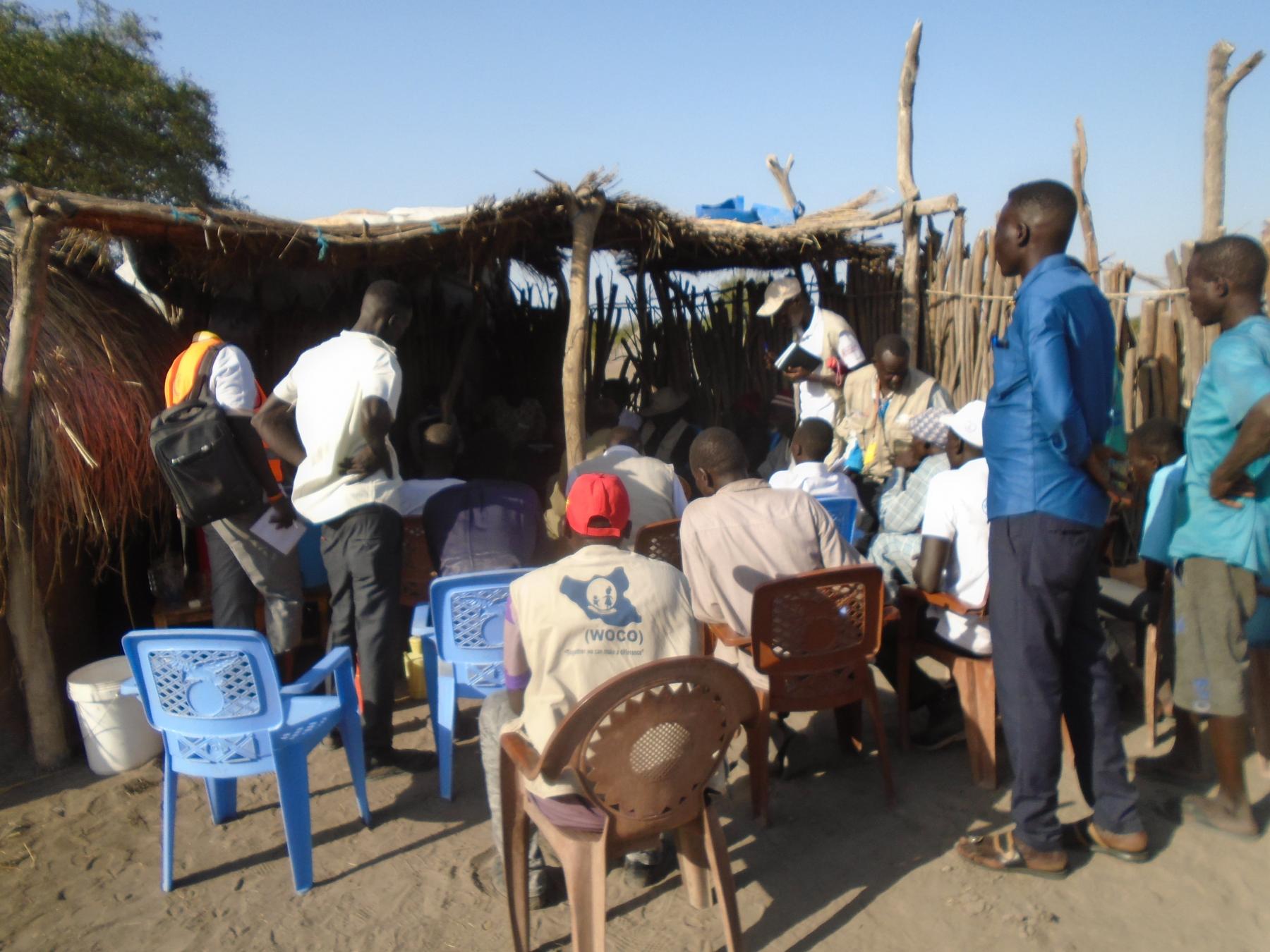
Partners meeting with the local authorities in the affected areas prior to the kick off of the assessment
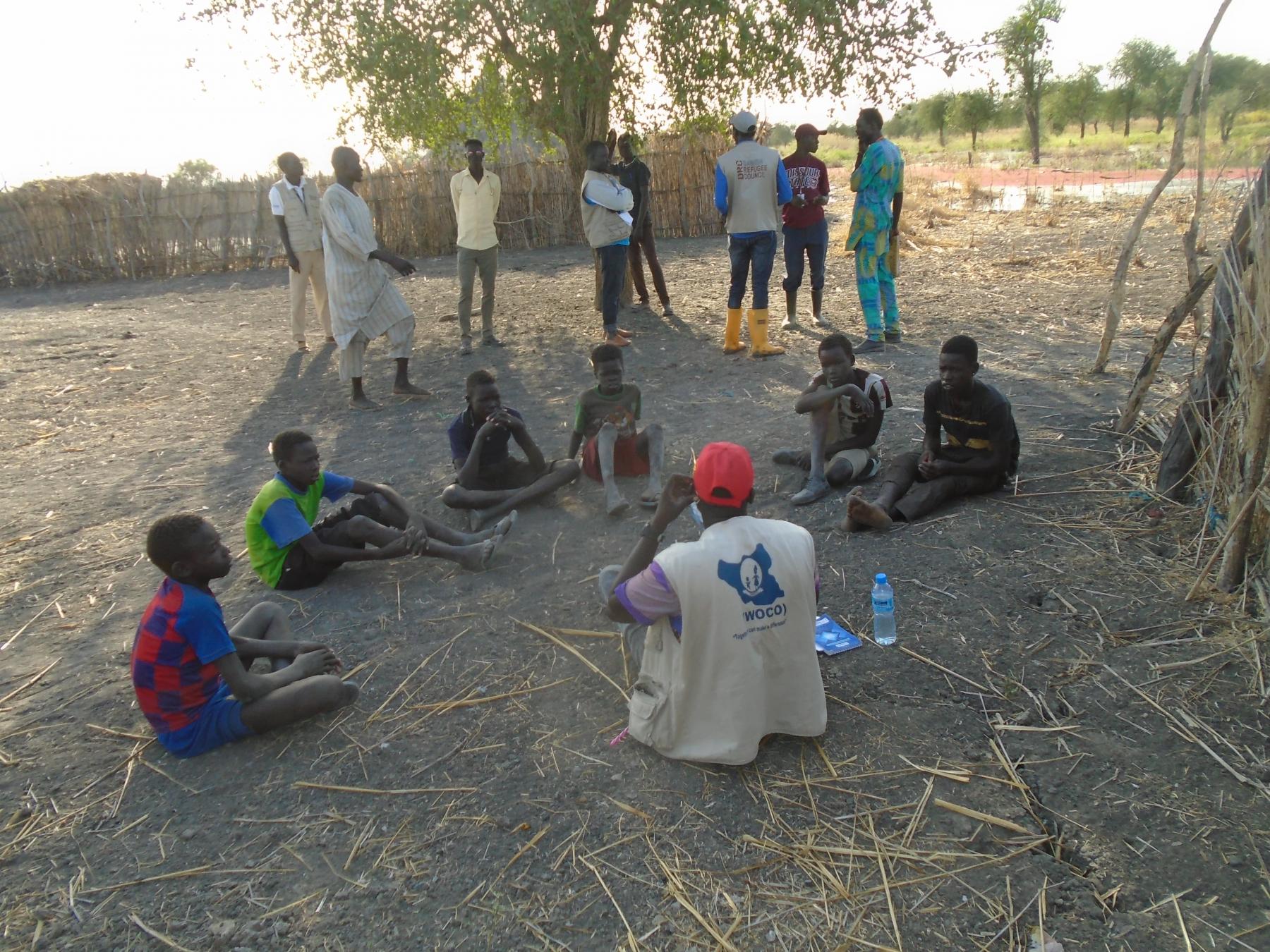
WOCO project officer engaging children in discussion to collect their views on the effect of flood
